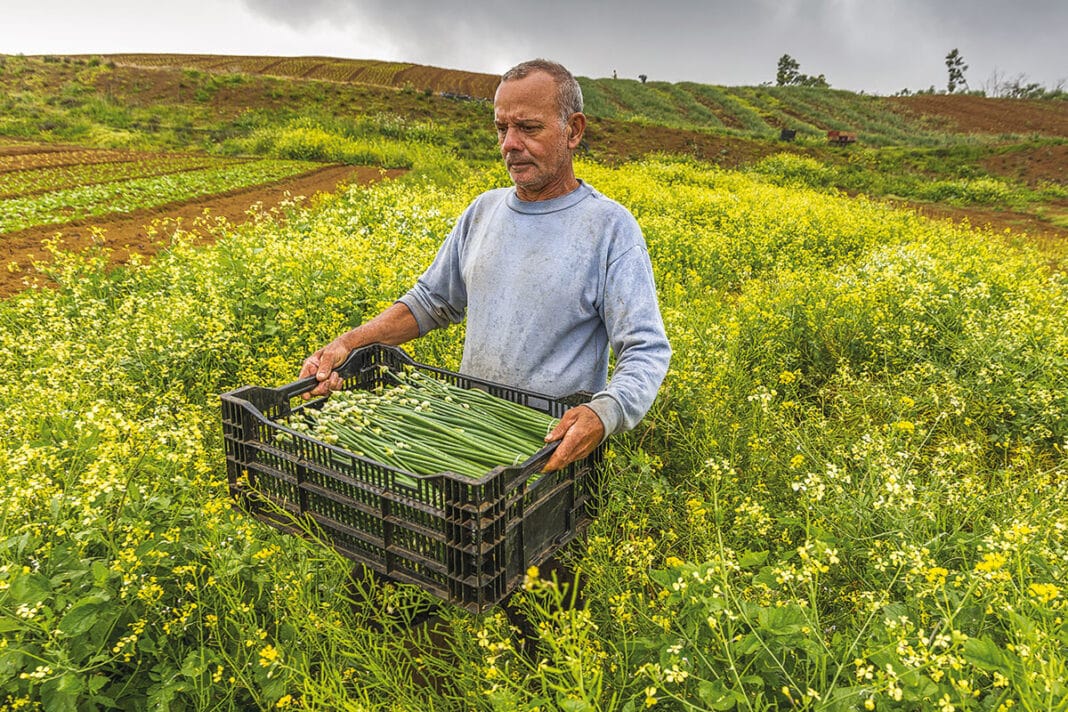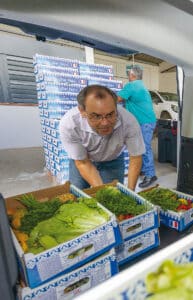
Created by the Department, the brand new brand “100% La Réunion” attempts to enlighten customers on the offer claiming to be local products, cluttered with labels to say the least, signs of origin and other signs of quality, some of which are not always justified. A desire for clarification explained by Serge Hoareau, first vice-president of the Department for Agricultural Affairs.
Meeting Leader : By launching a brand highlighting local production, the Department carries out an action planned in the Agripéi 2030 program. Who is this brand for? ?
Serge Hoareau : On the professional side, this brand is aimed at farmers, artisans and, to a lesser extent, to industrialists, although they are also quite eligible. On the side of the general public, it is aimed at both Reunion consumers and tourists, who thus have clarity on the products they buy.
What more or different does it bring compared to what already exists in terms of signs of recognition of local agricultural and industrial production?, even national with regard to organic ?
The creation of the brand results from a study carried out, a few months ago, which showed that, Firstly, consumers were lost, disoriented in the face of the multitude of existing brands and labels and that, on the other hand, they were asking for clear and unambiguous information on the origin of the products they buy. This brand just meets this need. It provides the consumer with the guarantee that what they buy has indeed been produced in Reunion Island with regard to agricultural production., or made in Reunion from local products. The “Produit pays” brand could also have met this expectation, but the term “péi” is overused in Reunion. We were thus able to find “broken country gooseberries” which, In fact, are Senegalese bissap, packaged in Reunion. Finally, it provides no additional guarantee on the “organic” criterion. But there again, a “100% La Réunion organic” product means that its raw materials are produced in La Réunion. Few Reunionese people know, for example, that most organic Reunionese jams are made with imported sugar., lack of sufficient local production of organic sugar. This brand therefore clarifies the offer and simplifies the purchase for the consumer..
Is the 100% La Réunion brand intended to become the unique and official sign of recognition of Réunion agricultural and agri-food products intended for consumers? ?
Each of the existing brands has its logic, its reason for being. 100% Réunion does not compete with them. Moreover, the agricultural sectors, the ADIR, who own and promote their own brands, have been involved in the work since it began. This new brand clarifies the offer for the consumer. It is therefore up to the consumer to make the final choice.. It is up to him and him alone to validate this or that approach, this or that action.
On what specifications is the new brand based? ? What criteria must producers meet? ?
The specifications are simple, accessible to all, and they will be communicated to the general public when the brand's website, under construction, will be operational. To be entitled to the 100% La Réunion brand, it is simply necessary that the company's headquarters and its production sites be based in Reunion Island, that all stages of production take place in Reunion and that the ingredients making up a product are produced in Reunion. If you can justify an objective quality criterion – a prize at a recognized trade fair, high environmental quality… —, you can request the mention “100% La Réunion Excellence”. Finally, if your productions are certified organic, you can request the mention “100% La Réunion organic”. But I insist on the fact that the organic or Excellence mentions are added to the basic criteria, which mark the Reunionese origin of the products.
Products whose packaging, for example canned goods, are imported can they be declared 100% Reunion ?
Yes, because we considered that the packaging does not constitute the motivation for the purchase of this or that product.
Furthermore, Reunion does not have industrial tools capable of meeting the demand for packaging. The same is true for certain excipients or components not produced in Reunion Island. : as long as they do not exceed 5% of the dry matter of the product, the product may request the 100% La Réunion brand. This is a tolerance found in most brands and labels.
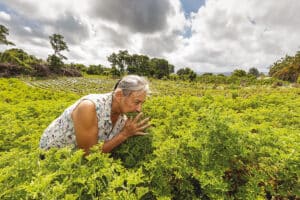
The Réunion Region has just announced that it is working on a “territorial brand” : is there no risk of confusion ?
The Réunion Region was involved in our work and reflections well before it announced that it wanted to create a territorial brand. This is therefore proof that the two approaches are complementary and not competing.. “100% Reunion Island”, it’s a practical brand, “down to earth” ; [it helps the consumer’s purchasing choice, in the shelves, in stores, on market stalls. The brand that the Region wants to develop should be more generic, more global and promote Reunion Island in all its aspects. We are therefore not on the same dimensions.
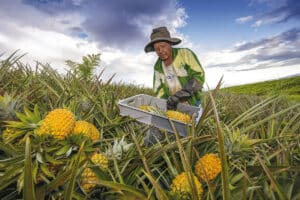
The Department has been relatively discreet until now on 100% La Réunion : is there any communication planned for the general public? ?
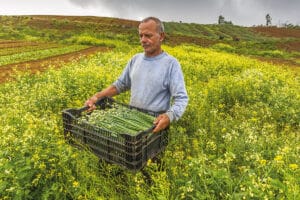
Yes, of course. We first worked to put together an offer. This is partly done since, like you said, despite discreet communication, around 40 producers and craftsmen from Reunion for around a hundred products have requested membership of the brand. And we are still receiving new applications. We are in the process of notifying the decisions. Some are simple, others ask for additional information to verify that the Reunion origin is indeed guaranteed. It is then that we will organize a general public communication, probably towards the start of the school year, to explain the approach pursued and encourage consumers to purchase 100% Réunion products as long as the origin of the product constitutes, for them, an important purchasing criterion. And we will also focus on this new brand during the next International Agricultural Show to inform metropolitan customers and the Reunion Island diaspora., as well as professional buyers of our products.


